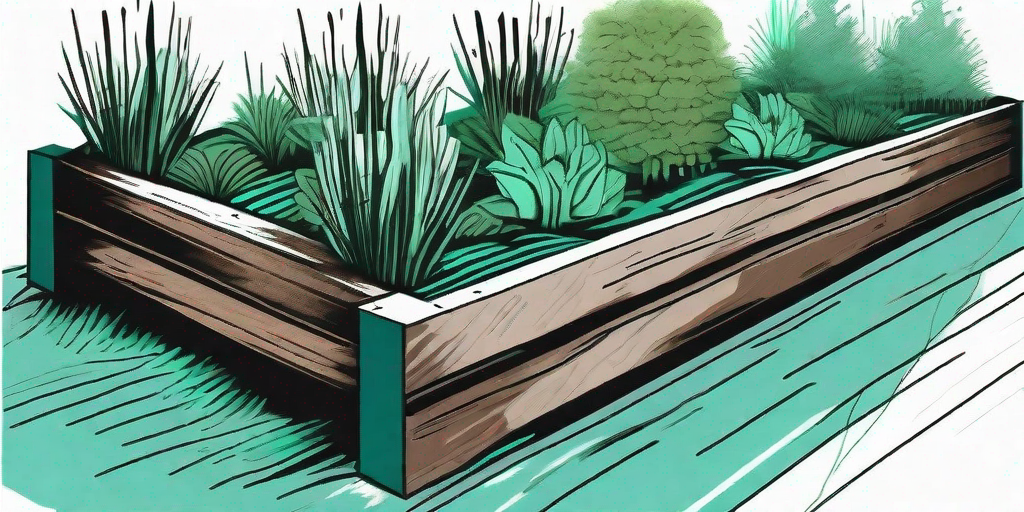
Ah, the humble railroad tie, a gardener's secret weapon for creating rustic, durable landscaping features. But could these seemingly innocent wooden blocks be harboring a dark secret? Could they be slowly poisoning your precious garden? Let's dive into this intriguing topic and find out.
The History of Railroad Ties
Railroad ties, also known as sleepers, have been around since the dawn of the railway age. Originally, they were made from wood, typically oak or chestnut, and were used to support the rails on a railway track. But as we all know, wood isn't the most durable material, especially when it's exposed to the elements. So, in the late 19th century, railway companies started treating their ties with creosote, a type of wood preservative made from coal tar.
Fast forward to the present day, and many of those old, creosote-treated ties have found a second life in our gardens. They're used for everything from retaining walls to raised beds, and they're popular because they're cheap, readily available, and they last for years. But there's a catch. That creosote that makes them so durable? It's also a potential health hazard.
The Dark Side of Creosote
Creosote is a complex mixture of chemicals, many of which are known to be harmful to humans and the environment. It's a known carcinogen, and it can cause skin and eye irritation, respiratory problems, and other health issues. But what about plants? Can creosote harm your garden? The answer, unfortunately, is yes.
Creosote can leach into the soil, contaminating it and potentially harming your plants. It can also be toxic to beneficial soil organisms, disrupting the delicate balance of your garden ecosystem. And if that wasn't bad enough, creosote-treated wood can also release harmful chemicals into the air, contributing to air pollution.
Alternatives to Railroad Ties
So, what's a gardener to do? Should we abandon our beloved railroad ties and start from scratch? Not necessarily. There are alternatives to creosote-treated railroad ties that can give you the same rustic look without the potential health risks.
One option is to use untreated hardwood ties. These won't last as long as their creosote-treated counterparts, but they're much safer for your garden. Another option is to use recycled plastic or composite ties. These are made from a mixture of recycled plastic and wood fiber, and they're just as durable as traditional ties, but without the toxic chemicals.
FAQs
Are all railroad ties treated with creosote?
No, not all railroad ties are treated with creosote. Some are treated with other types of wood preservatives, and some are untreated. However, the vast majority of old railroad ties that you'll find for sale have been treated with creosote.
Can I safely use creosote-treated railroad ties in my garden?
It's generally not recommended to use creosote-treated railroad ties in a garden, especially if you're growing food. The risk of contamination is just too high. If you must use them, it's a good idea to line the inside of your beds with a heavy-duty plastic liner to prevent the creosote from leaching into the soil.
How can I tell if a railroad tie has been treated with creosote?
Creosote-treated wood has a distinctive smell, similar to tar or asphalt. It's also often darker in color than untreated wood. If you're not sure, it's best to err on the side of caution and assume that it's been treated.
Conclusion
So, there you have it. Railroad ties: rustic, durable, and potentially toxic. But don't despair, dear gardeners. With a little bit of knowledge and a few simple precautions, you can keep your garden safe and healthy, without sacrificing that charming, rustic look.
Remember, gardening is all about balance. It's about creating a space that's not only beautiful, but also sustainable and safe. So, the next time you're tempted by those cheap, readily available railroad ties, take a moment to consider the potential risks. Your garden, and your health, will thank you.















